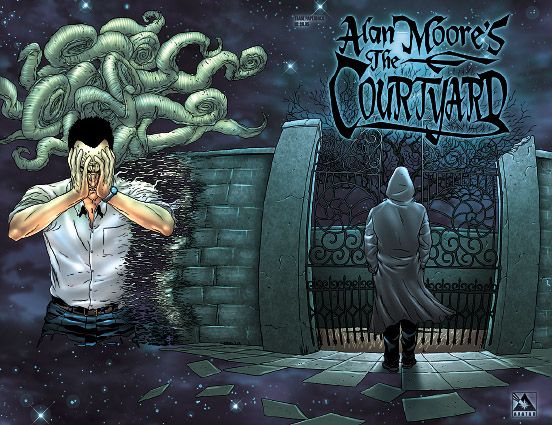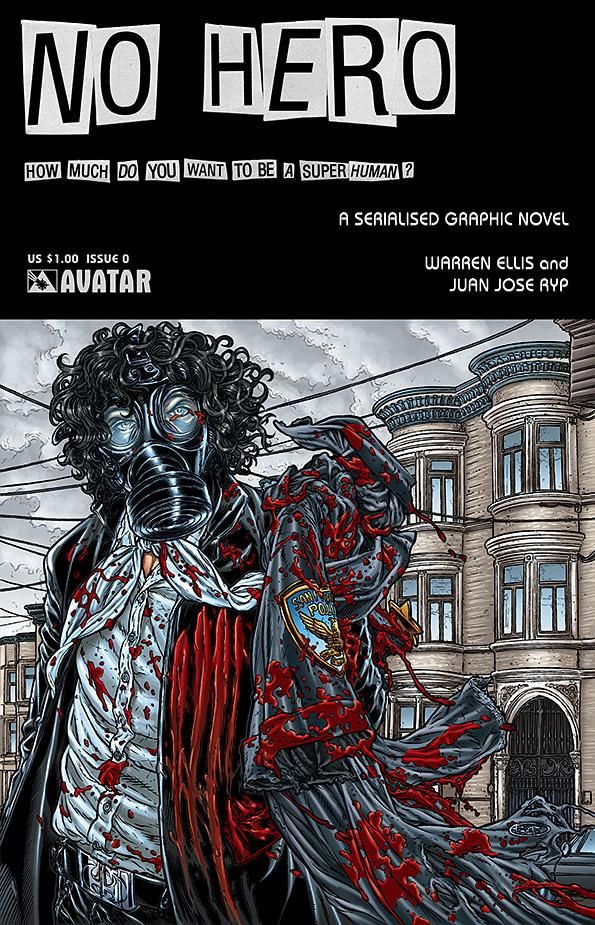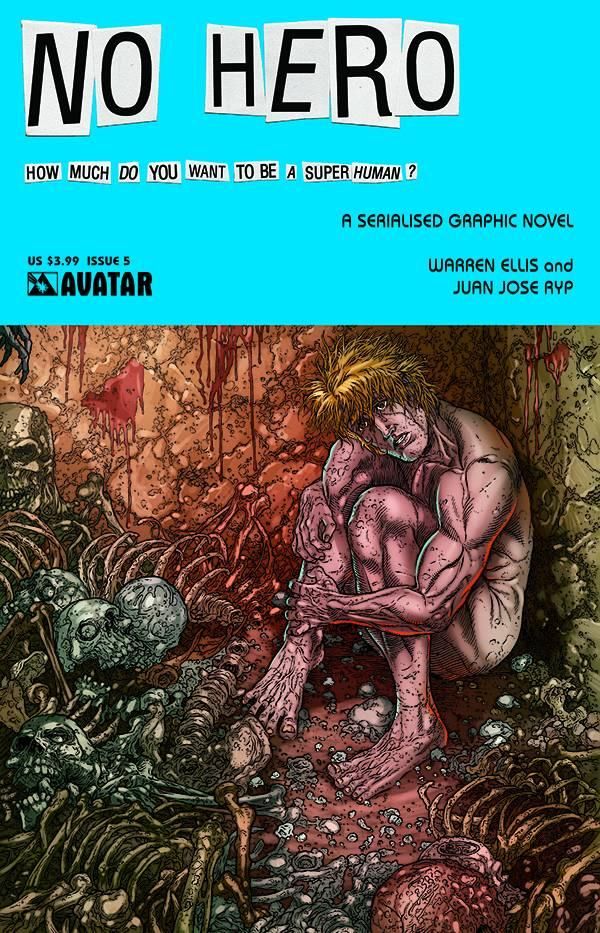This weekend I read No Hero, and found out that I have a bit of a problem. About once every decade I get a really disgusting craving (well, disgusting by some people’s standards, judging by their responses.) I crave oddly preserved fish. Sometimes it’s anchovies, sometimes sardines, once in a blue moon it’s haddock (but that’s a very British, breakfastey sort of thing and I haven’t been down that road in years.) Anyway, this weekend I had a yearning for sardines on toast. Normally this would have been a perfectly innocuous desire, easily satiated. The problem is that this weekend was also the first time I’d had to sit down and finally read No Hero and it turns out that the two combine in a rather unpleasant fashion.
(Before I go any further, I should let you know that if you haven’t read No Hero, this article will contain spoilers. Since I personally loathe spoilers [to the extent that ever since that Buffy incident a few weeks ago, I’m afraid to look at the front page of page of CBR], it seemed only fair to warn you. If you do not like spoilers, do not read this article.)
Okay, now that all of the idle onlookers have left, I can tell you; Eating sardines on toast after reading No Hero is extremely wrong because their little, squashed, silvery-blue bodies look very similar to the way I’d imagine Joshua Carver’s body to look once he became Revere, and on one wants to eat that on toast.
No Hero was a book that I fully intended to buy as it came out, on a monthly basis, but somehow I missed the first issue. Once that happened, I figured I’d patiently wait for the trade paperback. This turned out to be really bloody annoying. I kept looking at it on the shelf each month, having to stop myself from purchasing random individual issues. It’s not that I’m some kind of addict, but it’s really hard to watch something good happening that I want to read so very much, and not be able to get my hands on it as soon as I can. This is especially true when you’ve got a writer like Ellis, who can actually write for a monthly comic book. Unlike a lot of authors, he really understands the incredible complexity of pacing needed to create a work that will have exactly the right mixture of plot progression, character development, action, and intrigue. He is a master mixologist of the monthly comic book, who magically makes his special monthly mix also work within the final product of a compiled, trade paperback. It’s mind-boggling.
I am aware of the recurrent themes of Ellis’ work, but unlike other prolific authors, he often manages to approach them with a fresh angle, a new perspective. Upon beginning this book, when I saw the Levellers, led by a charismatic genius in a white suit, I thought of Planetary. Then there’s that wonderful drug - FX7 - that tears up the human body in order to rewrite it in new and better ways, reminiscent of Iron Man: Extremis. Then there's Carrick Masterson's disenchanted, world-dominating tirade of a speech, and I couldn't help but think of The Authority and their questionable attitudes to the world they practically run… If all Ellis did was this, I wouldn’t really have minded. I love those books, and I love those concepts. Combining some of my favorite elements of Ellis’ work to make a new product, set in my adopted hometown no less, and Juan Jose Ryp to draw the book (in the demented, elaborate visionary style of he bastard love-child of Geof Darrow and Heironymous Bosch) really works for me.
At it turns out, I was wrong. That’s not all Ellis did. Silly me, and my ridiculous, limited assumptions. As if he would be content to simply regurgitate his books in such a patchwork fashion. No, he took every idea in the book and turned it up to the proverbial 11.
Just when I was lulled into some kind of uneasy false state of relaxation, he took everything and tore it up. Just as Joshua Carver's body was disintegrating, so was the entire book, tearing itself apart like so much explosive, rotting flesh. In the words of Dr. Edwin Tyrell "A candle that burns twice as bright burns half as long, and you have burned very brightly...". Ellis, in his wisdom lets the story run the course, and he found a way to do it that was nightmarish and violent enough that, even with the growing hints of unseen horror, the carnage and depravity was impressive. Ryp and Ellis took us deep into the mind of a man who’s brain was more broken than anything we could imagine. As I read it, I kept thinking of Alan Moore’s The Courtyard, a book that had quite an impact on me at the time. The idea of something that once experienced would inevitably change/break people’s minds in very specific ways, this stuck with me. I thought that this is what it must be like inside the damaged mind of Joshua Carver. He must live there, surrounded by his own very specific kind of anti-life wrongness, filled with impulses and nightmares which are straight out of the alien horrors of The Courtyard… and I have to wonder if it might be like this for us, now that we’ve read No Hero.
A lot of people talk about comics that will last, have impact, are a comment on society and who we are. This time, for me, Ellis and Ryp did it. Watching the crazy progression of No Hero on the streets I live in was an incredibly intense experience and I’m extremely grateful to them for such a beautifully crafted work of anarchic mayhem.



